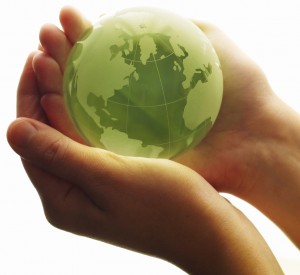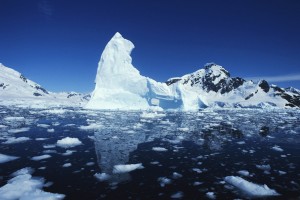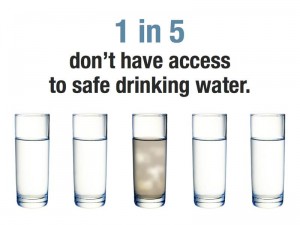It’s not often we post on a Sunday. In fact I think this is the first time we ever have. The reason for this post is clearly one of high importance then…
UPDATE: I have since discovered that this is our second post on a Sunday, the first being a warning to potential writers about providing copied content – another (although slightly less) important matter.
Every year (for the past four years) on the 15th of October, there is a global Blog Action Day, where bloggers around the world write about one common problem in the world today, in order to try to raise awareness of a pressing issue.
This year the day have been moved back to the 16th of October (today) as that makes it coincide with World Food Day. Unsurprisingly, this years Blog Action Day theme is on food.
A history of Blog Action Day
The first Blog Action Day was held in 2007. The 2007 theme was the environment. At the time, one of the main global concerns (not that it isn’t even more so now) was regarding the sustainability of our current way of life, and the environmental impact, be it global warming, climate change, ecosystem instability or environmental degradation.

A green coloured globe represents the environment, which is held carefully in someone’s hands – representing how we control the future of our planet
Blog Action Day took off with a bang with around 20,000 blogs taking part, of which, there were around 20 in Technorati’s top 100 blogs – at the time. This proves that from day 1, Blog Action Day had a big influence, giving it a big potential to actually raise awareness and improve things that it petitions for.
2008 saw an equally important matter being raised: poverty. Poverty is a very pressing issue, and is part of the UN’s 8 Millennium Development Goals which it hoped to meet by 2015.
In 2009 the theme changed to climate change. The phrase ‘global warming’ used to be used before we realised that it wasn’t a very good term, as it’s not just warming that is likely to take place.
The world’s climate is so intricate and complex that you couldn’t say that increase in greenhouse gasses via intensive farming of rice, rearing of cows, burning of fossil fuels, cutting down of rainforests etc. would cause global temperatures to rise, as it wouldn’t necessarily do that everywhere, all the time.

Melting ice caps are a symptom linked to climate change
Hence the term climate change was born in order to supersed the term ‘global warming’ in describing the likelihood of an increase in extreme and irregular weather/climate patterns.
In 2010 Blog Action Day moved onto stressing the importance (and scarcity) of water. Currently most people in the developed world use far more water than should really be available to them, if all water supplies were equally divided.
Only 3% of the world’s water is freshwater, of which the majority is ‘locked up’ in the form of ice. This means that less than 0.007% of all the worlds water drinkable and accessible. This matched with an exponentially rising global population is why over 20% of the world’s population don’t have access to safe drinking water, and one in three people around the world have inadequate sanitation.
 2011 – Food
2011 – Food
Now down to matter in hand – Blog Action Day 2011. As I have already mentioned, today is World Food Day, and Blog Action Day’s focus for this year is food.
World Food Day marks the 1945 foundation of the Food and Agriculture Organization, a UN project aimed at achieving food security for all, as well as making sure that people have regular access to enough high-quality, nutritional food, to lead active healthy lives.
Why should we worry about food?
In the words of Blog Action Day’s website:
“We use food to mark times of celebration and sorrow. Lack of access to food causes devastating famines, whilst too much is causing a generation of new health problems. It can cost the world, or be too cheap for farmers to make a living.
The way we companies produce food and drinks can provide important jobs for communities or be completely destructive to habitats and local food producers. Food can give us energy to get through the day or contain ingredients that gives us allergic reactions.
Food can cooked by highly skilled chefs with inventive flair, or mass produced and delivered with speed at the side of road. It can be incredibly healthy or complete junk and bad for your health. It can taste delicious or be a locals only delicacy.
Food is important to our culture, identity and daily sustenance and the team at Blog Action invite you to join us to talk about food.”
Nobody alive today can live without food for more than a month, and a lack of inadequate amounts/types of food can also kill.
Many people don’t realise it, but the greedy ‘Western’ lifestyle is the main reason for food issues around the world. Developed countries are getting too fat, whilst undeveloped ones are not getting enough food. According to the UN, malnutrition kills a child around the world every 15 seconds. That is heart breaking.
Westerners waste so much food, it is disgusting, even more so because of the fact that there are people who don’t have enough of the right foods (or any food at all for that matter) to eat.
How can you help?
If you want to help on a personal level there are two main things you can do.
- Try to source as much of your food as locally as you can. This helps local producers, as well as reduced greenhouse emission and water loss from undeveloped countries who use vast amounts of their scarce water to produce food for us. Some global food purchases can be justified, so try to pay attention to where your food is coming from and what the impact of getting it to you is.
- Donate to a crisis. There is currently a famine in Eastern Africa, and charities are there to help, but they need your help, be it through voluntary work or capital donations. I an not listing any charities, as it’s often better to decide yourself which ones to support.
You could also blog about the topic. If you have a blog, I wholeheartedly recommend you help to raise awareness yourself. If you read this a day or two late, don’t worry you missed the date, sill write about it and raise awareness. I missed the day last year, but I still blogged about it.
Blog Action Day suggest some topic areas you might like to discuss, which can be helpful if you are not sure where to start.

Technology Bloggers is supporting Blog Action Day!
If you do decide to write about Blog Action Day, you can register your blog with them, on their official list, so that they know roughly how many blogs took part.
The final way (I can think of at the moment) to help the Blog Action Day cause is to like them on Facebook or follow them on Twitter. Technology Bloggers is already doing this.
Please do your bit for the world and support Blog Action Day in whatever way you can.





